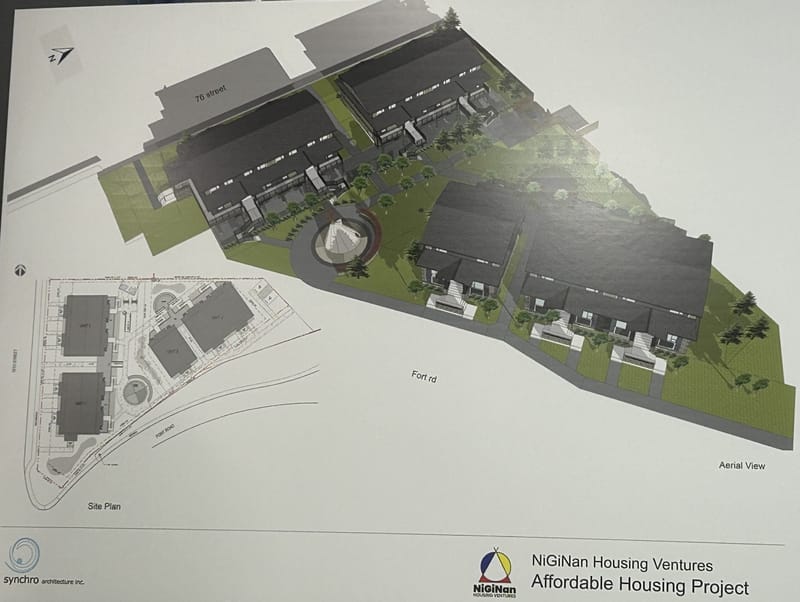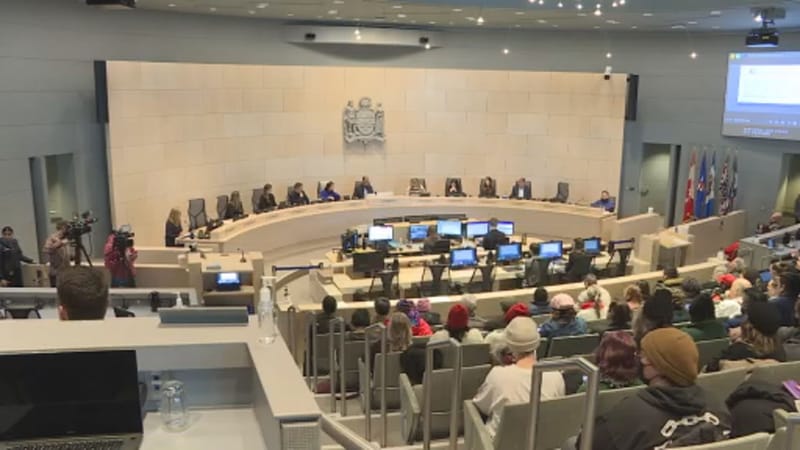Province tells U.S. firms Alberta wants data centres — but bring your own power
Natural gas the best energy source for data centres, minister says

The provincial government is actively promoting Alberta as an ideal location for data centres, which are facilities that store and process digital information.
During a recent trip to Silicon Valley, Minister of Technology and Innovation Nate Glubish presented Alberta’s case. However, one data centre CEO suggests that the high cost of power in the province may pose a challenge to these ambitious plans.
In an interview with CBC's Edmonton AM, Glubish highlighted that Alberta's environmental and business conditions are conducive to data centre development.
"We have a cold weather climate, so it's easy to keep these things cool. We have an abundance of energy that we can develop very cheaply and very quickly in a very friendly business environment — and we can do this faster than anywhere else," he stated.
He pointed out the province's commitment to reducing red tape and its electricity policies, which facilitate the construction of power generation infrastructure.
The province encourages companies to "bring your own power" and build their own infrastructure, with a promise that projects will receive approvals in six months or less.
"And in all of the conversations I've had with these folks, they're super excited about the value proposition that Alberta brings to the table," Glubish added.
Glubish was in San Francisco for three days as part of a delegation that included representatives from the Alberta Electric System Operator and Invest Alberta. The trade mission featured meetings with tech giants such as Meta, Salesforce, Amazon Web Services, Microsoft, Bitdeer, and Cleantech Group.
Dale Corse, CEO of Wolfpaw, a data centre hosting Edmonton's internet exchange points, noted that the cooler climate is an incentive for operations.
"You see a lot colder weather here even than in Calgary. So the savings on air conditioners is a lot higher here just because of the amount of cold that we get and how long we get it," Corse explained.
However, he stated that for data centres wishing to connect to the electrical grid, Alberta is not a viable option.
"Not even close … it's very obvious that the power infrastructure in Alberta has not really been kept up to demand."
During a deep freeze last January, Alberta issued four power-grid alerts in four days as electricity demand exceeded generating capacity. In April, tens of thousands of households lost power due to a shortage in electrical generation, prompting the AESO to implement temporary usage cuts.
While it can be challenging to compute and compare average electricity prices across provinces, data from Energy Hub in 2023 indicates that Alberta had the highest average electricity costs among Canadian provinces.
Corse identified this as a significant hurdle for the province's aspirations.
"I think we are well positioned for it, but the government really does have to get these energy costs under control."
Glubish, however, emphasized that ensuring reliability and affordability of the grid is the priority.
"Almost all of these projects are looking at a behind-the-fence, off-grid solution. So if they build their own power generation, it's not connected to the grid; there's no way that it can impact the grid."
Regarding renewables, the demand for data centres is being fueled by the rapid advancements in artificial intelligence, which require substantial amounts of electricity.
Vittoria Bellissimo, CEO of the Canadian Renewable Energy Association, stressed the importance of incorporating renewables into the discussion.
"I think it's absolutely vital that new data centres come to the table with new supply, and I think that new supply needs to be as clean as possible," Bellissimo stated.
She noted that many data centres are actively seeking renewable energy solutions, which could potentially drive energy innovation in the province.
However, following a temporary halt on renewable development and new regulations regarding wind project locations, Bellissimo called for clearer guidelines for investors.
"We still have an electricity market design that's in flux, and we have transmission policy that's in flux. So we need to finalize those to provide clear signals for new investment."
Glubish mentioned that, for the time being, data centres will primarily rely on natural gas for power—at least for the next five years.
He believes natural gas is the most reliable option for powering data centres but acknowledged significant interest in carbon capture technology, wind, solar, and even nuclear solutions to achieve net-zero projects.
"We're open to all of the above … But in the short term, we need to be able to use current-day technology. The best technology for that, the cleanest technology for that, is natural gas," he said.
"We've got a great home run here to offer to this marketplace."





